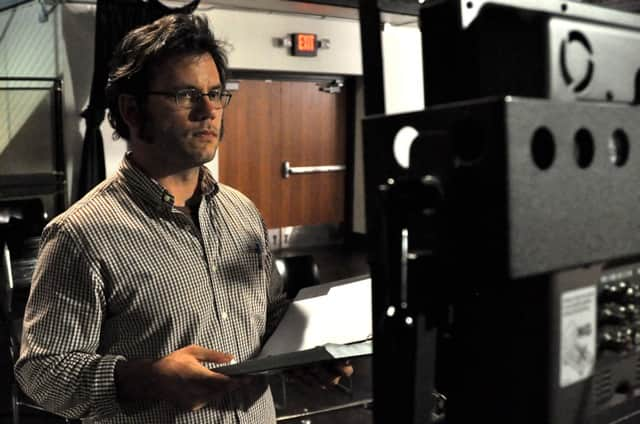When Jacob Kornbluth was an Interpersonal Communications major at the College of Communication Arts and Sciences, he had an interest in relationships and uncovering the reasons why people lie. His curiosity in people and all of their complexities mixed with an impulse to learn about concepts he didn’t understand, ultimately resulted in ideas worthy of portraying in film. Ideas that kickstarted his career.
“I work as a director full time, though I spread my work over short-form and long-form (projects),” explained Kornbluth. “I co-founded a nonprofit with Robert Reich, Inequality Media, that makes short (2-3 minute) videos to explain complex economic issues in a way everyone can understand. In 2016, the videos had 100 million views. As it goes for 2017, the audience has continued to grow and videos have already reached over 70 million views.”
Jacob hopes to make 25 to 50 videos this year. He just released LOVE & TAXES, a feature-length comedy that he directed. Later this year, he plans to release a feature documentary called Saving Capitalism, a Netflix Original Film.
Past success led to future lessons
Kornbluth’s previous work includes a documentary he made after the financial crash of 2008 called Inequality for All. This piece won a special Grand Jury Prize at Sundance, was released by The Weinstein Company and did the best at the box office for any issue documentary since Waiting for Superman. Kornbluth says that to this day, his favorite part of the process was truly understanding the bigger issue by the end of it.
“When I made Inequality for All ... my friends and I were sitting around trying to figure out what happened,” said Kornbluth. “I was watching the news after the crash in a way I hadn’t before. I was trying to make sense of it all, and it felt like the more I learned about what happened, the less I understood it. I didn’t have a financial background, so I went into a period of deep and focused study for a year to figure it out. Now, I refer to this period as my own ‘grad school’.”
Currently residing in Berkeley, California, Kornbluth is in production on Saving Capitalism, a follow-up to Inequality for All. In collaboration with Robert Reich, it is another piece that tells a compelling story while making sense of tumultuous economic times. Since the 2016 election result, the premise of the story changed from a transition in liberalism and conservatism to the importance of economic power as a whole.
Making his mark
After his time at ComArtSci, Kornbluth has bounced around all over the globe making moves in the industry. Following graduation, he immediately moved to San Francisco looking for a fresh start. He then immersed himself into the theatre culture by directing three comedies, which led him to working on film crews. Eventually, Kornbluth found his way to Los Angeles to immerse himself in the film business. There, he directed his first comedy film, called Haiku Tunnel, that went to Sundance and was distributed by Song Pictures Classics.
Later, he moved to New York City and created a narrative drama called The Best Thief in the World starring Mary-Louise Parker and other New York Theater actors. Kornbluth’s admiration for theatre led to working as a screenplay writer. He then encountered the itch to get back into directing, this time in documentaries.
“All of (my) work on stories has informed my work as a documentary director,” said Kornbluth. “I believe, first and foremost, a movie needs to be entertaining and fun to watch. When I bring that approach to ‘big issues,’ the results have been interesting to audiences. My hope is to continue that work going forward.”
Green roots
Kornbluth draws a direct line from where he is today back to his personal experiences as a Spartan. His passion still springs from his own curiosity, which has motivated him while striving toward personal and professional long-term goals.
“My work in film today tends to focus on the big issues, things like economic inequality and climate change, in a way that is personal and approachable,” said Kornbluth. “It’s a genuine privilege to tell stories that help others make sense of the big questions we all share. I feel like I’m just now getting better at visual storytelling, and hope to spend a lifetime improving on my craft.”
